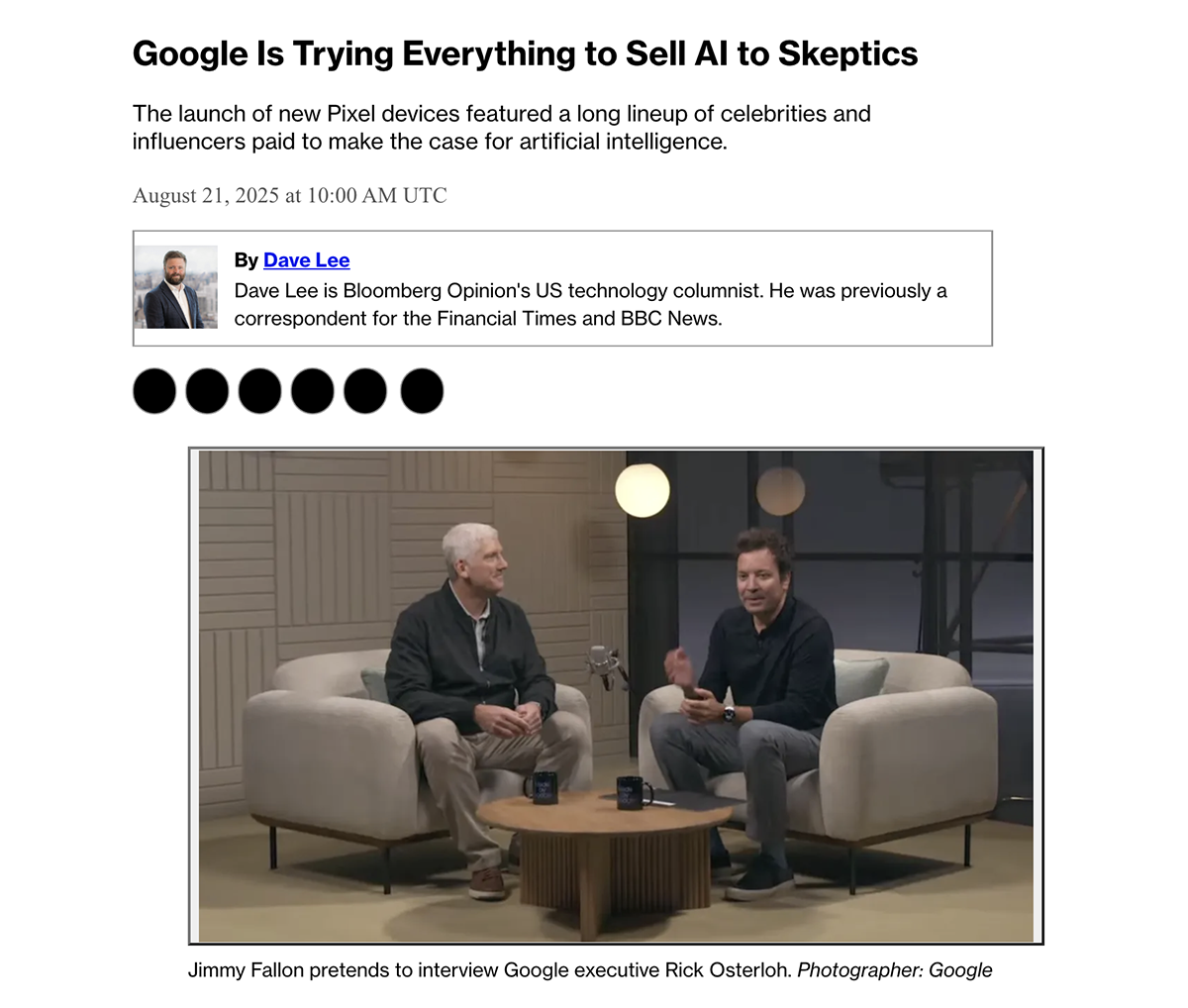The metaphors become really complicated at this level, given the thirsty water requirements of LLMs. But give Bloomberg its due for the most succinct cut-line in history of such things:

It cuts way down past the chase, to the quick, and presents what seems an unlikely reveal, inevitable as it may be. We can be relatively sure that neither Fallon nor Google is ashamed to be called out like this. And Photographer: Google really adds that special something.
The clown show is hard, one would imagine. When making people laugh is what keeps the audience coming back, eventually the comedian will become a water carrier for the status quo. It’s the raisin debt of every influencer, about which they are quite open. The question is what it does to us and everything around us, shaded in this light, as it were. The quick can still burn, if the numbness isn’t total.
Pay attention to what ‘becomes the norm.’ It’s certainly not as passive of an activity as the construction suggests.
